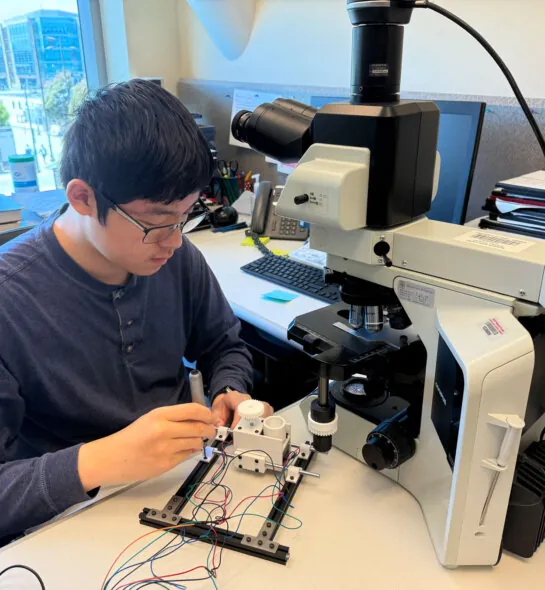Deeper Dive
Low-cost AI solutions for pathology diagnosis and screening are critical for advancing global cancer care, particularly in low-resource settings where access to expert pathology is limited or nonexistent. For example, in sub-Saharan Africa, there are fewer than one pathologist per million people, compared with approximately one per 20,000 in high-income countries. This shortage creates significant diagnostic delays and limits access to timely cancer treatment. For a disease like acute leukemia, which I focused on in my project, a late diagnosis can mean the difference between life and death. Leukemia is caused by the uncontrolled growth of immature white blood cells, called blasts, in the bone marrow. It is especially deadly if not treated quickly because it disrupts the production of essential cells, leading to serious complications such as infection and bleeding.
I was personally inspired to pursue this project when my great-aunt was diagnosed with acute myeloid leukemia a few years ago. The diagnostic process was very frustrating for her and for us as a family due to its convoluted steps and the extensive time it took before she received treatment. My system, ALLocate, introduces an affordable, self-driving microscope powered by AI, designed to operate in low-resource settings. It automates patient sample analysis by digitizing slides and performing pre-screening through multiple deep learning models.
For small hospitals and clinics in underserved and remote areas, ALLocate has the potential to save lives. This summer, I began distributing ALLocate to a few hospitals in my area. One story I heard from a doctor especially resonated with me. Every six months, a clinician from their hospital would visit the Congo to collect patient slides and send them back to her for remote review. With no pathologist in the area, these samples would pile up, and patients would often wait months for a diagnosis. Because acute leukemia progresses so quickly, many of these patients had already passed away or reached a stage too late to treat by the time they were diagnosed.
ALLocate can help address situations like these by providing a reliable pre-screening method and remote pathology platform to improve the efficiency of leukemia diagnosis. After extracting bone marrow samples from patients, they can be processed through the ALLocate pipeline, with both the results and original patient data sent to a pathologist for remote evaluation. ALLocate can be operated by someone with limited experience, allowing for sample review even when no pathologist is available on-site.



